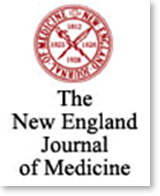Posted on February 13, 2014
Source: The New England Journal of Medicine

Persaud D, Luzuriaga K.
Persaud et al. (Nov. 7 issue)1 describe the extensive virologic and immunologic evaluation of a neonate with human immunodeficiency virus type 1 (HIV-1) infection that was controlled after the early initiation of combination antiretroviral treatment (ART). Differences from previously presented transient infections were correctly pointed out.2 The mother probably has long-term nonprogressive disease, which controls HIV replication. The underlying mechanisms of long-term nonprogressive disease are unknown. We recently identified an inherent protective characteristic of natural killer (NK) cells in long-term nonprogressive disease that is represented by failure in the induction of the activating 44-kD surface molecule NKp443 with conserved NK-cell function, possibly protecting these patients from innocent-bystander killing of CD4+ cells expressing the NKp44 ligand induced by the HIV antigen gp41 peptide S3.4